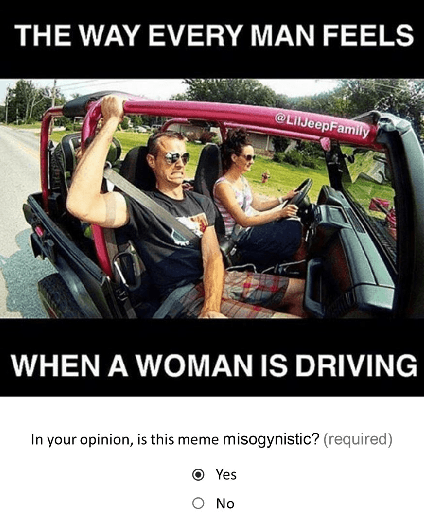Benchmark dataset of memes with text transcriptions for automatic detection of multi-modal misogynistic content
Paper and Code
Jun 15, 2021


In this paper we present a benchmark dataset generated as part of a project for automatic identification of misogyny within online content, which focuses in particular on memes. The benchmark here described is composed of 800 memes collected from the most popular social media platforms, such as Facebook, Twitter, Instagram and Reddit, and consulting websites dedicated to collection and creation of memes. To gather misogynistic memes, specific keywords that refer to misogynistic content have been considered as search criterion, considering different manifestations of hatred against women, such as body shaming, stereotyping, objectification and violence. In parallel, memes with no misogynist content have been manually downloaded from the same web sources. Among all the collected memes, three domain experts have selected a dataset of 800 memes equally balanced between misogynistic and non-misogynistic ones. This dataset has been validated through a crowdsourcing platform, involving 60 subjects for the labelling process, in order to collect three evaluations for each instance. Two further binary labels have been collected from both the experts and the crowdsourcing platform, for memes evaluated as misogynistic, concerning aggressiveness and irony. Finally for each meme, the text has been manually transcribed. The dataset provided is thus composed of the 800 memes, the labels given by the experts and those obtained by the crowdsourcing validation, and the transcribed texts. This data can be used to approach the problem of automatic detection of misogynistic content on the Web relying on both textual and visual cues, facing phenomenons that are growing every day such as cybersexism and technology-facilitated violence.
 Add to Chrome
Add to Chrome Add to Firefox
Add to Firefox Add to Edge
Add to Edge